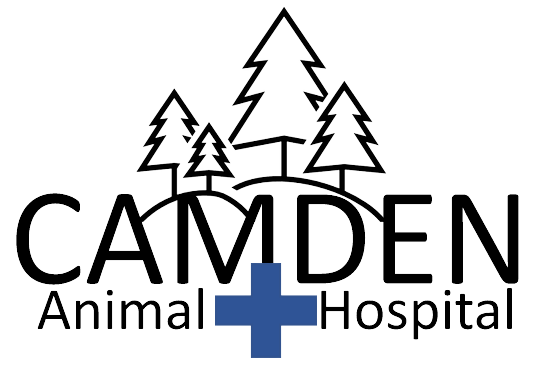Our furry companions bring immense joy and love into our lives. As pet owners, we strive to ensure their health and well-being through proper diet, exercise, and regular checkups. Unfortunately, accidents or age-related issues can sometimes lead to injuries requiring specialized veterinary care. In such cases, pet orthopedic surgery may be recommended. Veterinary practices are well equipped to handle these procedures, offering your pet the best chance at a full recovery.
Recognizing Signs Your Pet Needs Orthopedic Surgery
Just like humans, pets can experience a variety of orthopedic problems affecting their bones, joints, ligaments, and tendons. While minor injuries might heal on their own, some conditions necessitate surgical intervention. Here are some signs that might indicate your pet needs orthopedic surgery:
- Limping or Difficulty Walking: This is a common red flag, especially if the limping is persistent or worsens over time. Pay attention to whether the limping is in a specific leg or if it alternates.
- Trouble Getting Up or Down: Difficulty rising from a sitting or lying position can be a sign of pain or weakness in the limbs or back.
- Abnormal Posture: Notice any changes in your pet’s usual posture, such as hunching, holding a leg up, or favoring one side of the body.
- Loss of Appetite or Lethargy: While these symptoms can indicate various issues, they can also be present when a pet is experiencing pain due to an orthopedic condition.
Preparing Your Pet for Orthopedic Surgery in Camden
If you notice any of the above signs in your pet, it’s crucial to schedule an appointment with a veterinarian. During the consultation, the veterinarian will perform a thorough physical examination and may recommend further diagnostic tests like X-rays or MRIs to pinpoint the exact problem. Once a diagnosis is confirmed and orthopedic surgery is deemed necessary, the veterinarian will walk you through the pre-operative process.
Here’s what you can generally expect:
- Pre-Anesthetic Bloodwork: Similar to humans, pets undergo blood tests to assess overall health and ensure they can safely undergo anesthesia.
- Detailed Consultation: The veterinarian will discuss the specific surgery, potential risks and benefits, and answer any questions you may have.
- Pre-Surgical Instructions: You’ll receive detailed instructions on pre-surgery preparations, including withholding food and water for a specific time frame before the procedure.
It’s understandable to feel anxious during this time. Remember, open communication with your veterinarian is key. Don’t hesitate to ask questions and voice any concerns you might have.
Supporting Your Pet’s Recovery After Orthopedic Surgery
Following surgery, your pet will be closely monitored in a comfortable recovery area. Pain management is a crucial aspect of post-operative care, and your veterinarian will prescribe appropriate medication to ensure your pet’s comfort. It’s essential to strictly adhere to the prescribed medication schedule.
The veterinarian will also provide instructions on activity restrictions. Depending on the surgery, your pet might need to wear a protective Elizabethan collar (cone) to prevent them from licking or chewing at the incision site. Physical therapy or rehabilitation exercises might be recommended in some cases to help your pet regain strength and mobility.
Recovery Timeline and What to Expect
The recovery timeline after pet orthopedic surgery varies depending on the specific procedure, your pet’s age, and overall health. Generally, most pets experience significant improvement within a few weeks, with full recovery taking several months in some cases. Patience and following your veterinarian’s post-operative instructions are crucial for a successful recovery.
Here are some additional points to keep in mind:
- Monitor the incision site: Watch for signs of infection like redness, swelling, or pus discharge. Contact your veterinarian immediately if you notice any of these.
- Gradual return to activity: Don’t rush your pet back to their usual activity level. Stick to the veterinarian’s recommended exercise restrictions to prevent complications.
- Nutritional Support: Provide your pet with a healthy diet to promote healing and overall recovery.
Living a Happy and Active Life After Surgery
Advancements in veterinary medicine have made pet orthopedic surgery a safe and effective option for many conditions. With proper care and rehabilitation, most pets recover well and can return to a happy, active life. Remember, early detection and prompt veterinary intervention are crucial for a positive outcome.
Your Partner in Pet Care Throughout Camden and Beyond
Pet orthopedic surgery can be scary, but with a skilled vet and loving home, your furry friend can bounce back. Live in Camden or nearby (Hampton, Smackover, Stephens, Fordyce, Bearden, Chidester)? Camden Animal Hospital offers expert care.
Early detection is key. Schedule regular checkups and address mobility or health concerns promptly. Working with Camden Animal Hospital ensures your pet gets the best, including surgery when needed.
Ready to discuss your pet’s health? Book an appointment at Camden Animal Hospital today!


